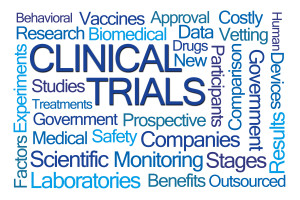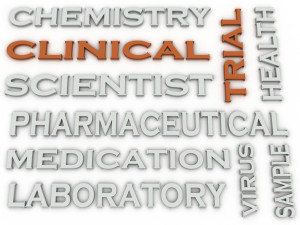 There is no doubt that one of the most important classes of software currently in use is medical software. There are few other areas of life where mistakes cannot be tolerated, as the results are catastrophic. Medical software spans a broad array of functions, everything from patient management to clinical trial management.
There is no doubt that one of the most important classes of software currently in use is medical software. There are few other areas of life where mistakes cannot be tolerated, as the results are catastrophic. Medical software spans a broad array of functions, everything from patient management to clinical trial management.
Today we’re going to talk about the realm of clinical trial management software. This is software that is used to streamline the processes of a very involved scientific endeavor. Make no mistake, clinical trials are lengthy and involved processes. They have many moving parts, so to speak. Mistakes can be quite costly and require repetition that is time consuming and expensive. The need for full featured clinical management software has never been greater. The fact is that the Western world is facing an aging population that is going to live longer than any other generation in history. This means that new drugs will have to be developed to improve their quality of life. This requires massive numbers of clinical trials for development, and smart software to help pharmaceutical companies keep on top of the results.
What is Clinical Trial Management Software
To start with, let’s give a brief introduction to the concept of clinical trials. When medicine is being developed, the developers have to adhere to the scientific method. They need to have some hypothesis that they are testing. They may postulate that a certain combination of compounds will result in the reduction of cholesterol, for example. This is a sort of “intervention” enacted by the plan designers on the participants. These interventions are compared to a control group, typically a group of people that are given a placebo. For those that aren’t aware, a placebo is literally a sugar pill. It has no real medicinal value, however it’s an interesting medical fact that placebo actually alleviates symptoms of most conditions. Stuff that makes you go “hmm”.
At the start of the trial, it is unknown what the effect of the compound will be, exactly. Sure, they have some broad idea of what may happen, however it is not known precisely how individuals will react. Furthermore, since everyone is different, certain individuals may have different reactions. Some will experience adverse side effects, while others will experience none at all. Some people may experience nothing at all. For this reason, the trial will usually compare large numbers of people that are sufficiently randomized with respect to their demographics and ethnicity. This allows the investigators to gather a large amount of data that is meaningful and enables them to make scientific deductions on the efficacy of the treatment.
As you might be able to guess, the need to keep track of the condition of many dozens, if not hundreds of individuals, over time is a big task. If it is left for humans to perform each and every associated task, there is a high potential for error. This will compromise the results of the study, which makes the data meaningless at worst or suspect at best. As such, the need for software to help manage the clinical trial is quite strong.
Many of the features of this software will be familiar to you if you have been reading the blog for some time. It incorporates the features of customer relationship management software, project management software, and some others. Let’s take a look at some of the key functionality
Core Functionality of Clinical Trial Management Software
Participant Communication: Keeping track of the participants of your study is going to be essential. This can be facilitated through sending text messages, sending polls or surveys to participants, or emails. This allows you to get feedback on how they are feeling, how the staff is performing, or anything else of concern to your trial.
Questionnaire functionality: Some studies will rely on reporting of data by the participants themselves. This is common in nutrition type studies or exercise science. The best clinical trial management software will allow the researchers to collect information via online questionnaires that are stored in a regulatory compliant online repository.
Collection Kit functionality: If research staff has to collect samples from the study participants, it will definitely involve a lengthy procedure. Collecting sa mple kits is a critical step, as environmental contamination can be a huge concern. Some clinical management trial software lets you track this process from end to end, so you know that the whole process is being executed correctly.
mple kits is a critical step, as environmental contamination can be a huge concern. Some clinical management trial software lets you track this process from end to end, so you know that the whole process is being executed correctly.
Collaboration: Clinical trials are a team effort. This means that many people will have to collaborate to get the job done right. You don’t want to rely on archaic spreadsheet systems to disseminate data or track study results. A robust collaboration function is needed to make sure everybody involved, from the technicians to the stakeholders, are up to date and involved in the study.
Data entry: One challenge clinical trials face is data entry. If the software is not easy to use, then people can be prone to making errors. As we alluded to above, this is costly for the trial and can ruin it in the worst case scenario. Functionality to streamline this process is critical.
Staff management: since it is a team activity, you’re going to have to schedule a large number of people. Fatigue can result in errors and mishandling of samples, so features to facilitate the scheduling of required personnel is really handy.
Financial management: clinical trials aren’t cheap and they need strict budgetary controls. Costs include personnel, supplies, regulatory compliance, and more. Keeping track of all of these factors is essential to making sure you don’t run out of money half way through.
Calendar management: in addition to managing money, the staff is going to have to keep track of key milestones. The ability to set milestones and notifications to key stakeholders is going to go a long way towards making sure the study is on task and on point at every step in the process.
Other Functionality to Consider
One key thing you want to consider is regulatory compliance. Since we’re dealing with medicine, there are umpteen million different regulations that have to be obeyed. This can be easily facilitated by the software by baking in compliance from the very start. Patient confidentiality has to be protected at every step of the process, so you need to know that the data is going to be encrypted and stored securely. Not only do you have to protect the data collected during the trials, but any associated medical records have to be kept secure as well. Needless to say, this is all very sensitive information.
Another thing to consider is the scalability of the software. The software package should be able to serve your needs as your organization grows. Typically this can be accomplished by access to APIs so that you can hire programmers to extend functionality or integrate it into existing websites.
Mobile access is going to be a key parameter. You want your patients to be able to access information online, as well as your team members. One handy feature is going to be online access for potential patients. Not every software platform is going to be web based, but most are.
Conclusion
Clinical trials are the foundation of modern medicine. New drugs and treatments require experimentation on a large number of subjects to get accurate statistical data. This is to ensure the treatment is effective and safe. As the population ages, the medical community is going to be conducting more a nd more of these trials, necessitating the use of clever clinical trial management software.
nd more of these trials, necessitating the use of clever clinical trial management software.
This software should help streamline the entire process. It needs to help with onboarding patients as well as keeping track of their progress through the trial. Functionality to communicate with patients, through a variety of channels, is going to be key. In addition, it should support collaboration between team members and stakeholders.
The most critical aspects are going to be related to regulatory compliance. If nothing else, you want to be sure that the software is adequately protecting the patients’ confidentiality, and is complying with HIPAA regulations. If specimens are being handled, then the software should help the investigators track the specimens at each stage to make sure there is no accidental misprocessing.
We hope this has been helpful. Stay tuned for the next article.




